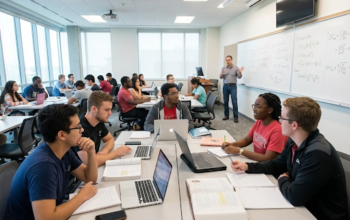Learning to drive is a significant milestone in a teenager’s life, offering them newfound freedom and responsibility. Traditionally, many parents have taken on the role of teaching their children to drive, but in today’s fast-paced world, opting for professional driving lessons for teenagers has become a popular alternative. While parents undoubtedly have the best intentions, professional driving instructors bring a wealth of knowledge, experience, and training that can ensure a teen driver is better equipped for the road. Here’s why choosing professionals over parents for teen driving lessons is often smarter.
1. Structured and Comprehensive Curriculum
Professional driving instructors follow a structured curriculum that logically and comprehensively covers all essential driving skills. From essential vehicle control to complex maneuvers like parallel parking, professionals ensure that teen drivers are introduced to each skill appropriately. They also cover critical topics such as defensive driving, road signs, and traffic laws, which parents may overlook or assume their teens already know. Driving lessons for teenagers with professionals are designed to create well-rounded and knowledgeable drivers, minimizing gaps in their training.
2. Professional Instructors Have Extensive Experience
One of the most significant advantages of professional driving lessons is the experience and expertise instructors bring. Driving instructors are trained to teach young drivers, including those with little or no experience. They understand the learning process of teenagers and know how to tailor their lessons to each individual’s pace. Moreover, they are equipped to handle common issues new drivers face, such as anxiety or hesitation. On the other hand, parents may lack the patience or techniques to effectively manage their teen’s learning curve, which could lead to frustration or tension during lessons.
3. Better Safety Habits and Defensive Driving Techniques
Teaching safety on the road is one of the most crucial aspects of learning to drive, and professional instructors excel in this area. They emphasize the importance of defensive driving—anticipating and reacting to potential hazards before they become serious problems. While parents may be able to teach basic driving skills, professionals focus on building a deep understanding of road safety. They teach teens to handle difficult situations, such as driving in bad weather or navigating heavy traffic, making them more prepared for real-world driving conditions. This emphasis on safety is significant for 15-year-olds, who may lack the judgment or experience to avoid risky behaviors.
4. Objective and Neutral Feedback
One of the challenges of parent-led driving lessons is the emotional dynamic between parent and child. Driving can be a stressful experience for both parties, especially if the teen is nervous or the parent is overly critical. This emotional tension can hinder the learning process and cause frustration. Professional instructors, on the other hand, provide neutral, objective feedback. They create a calm and supportive learning environment where teens can make mistakes and learn from them without fear of criticism. This positive atmosphere is crucial for building a teen’s confidence behind the wheel.
5. Familiarity with Testing Standards and Procedures
When it comes time for a teenager to take their driving test, familiarity with the testing standards and procedures is essential. Professional driving instructors deeply understand what is required to pass the test. They ensure that teen drivers are well-prepared to drive safely and meet the specific criteria examiners seek. Many professional driving schools offer mock driving tests, which simulate the experience, allowing teens to practice under test-like conditions. Parents may not be as familiar with current testing standards, which can result in gaps in their child’s preparation.
6. Access to Dual-Control Vehicles
One of the key benefits of professional driving lessons for teenagers is using dual-control vehicles. These cars are specially equipped with a second set of pedals on the passenger side, allowing instructors to take control if necessary. This feature provides an added layer of safety, giving both the teen driver and the instructor peace of mind. If a dangerous situation arises, the instructor can intervene to prevent an accident. Parents, however, don’t have this advantage, making it riskier to teach teens in a standard vehicle.
7. Reduces Parent-Teen Conflict
The teenage years can be a tension between parents and their children, and learning to drive can amplify this dynamic. The stress of being responsible for a teenager’s driving education can strain parent-child relationships, especially when emotions run high. Parents can avoid conflicts and arguments during driving practice by opting for professional driving lessons. Teens are more likely to take instruction from a professional seriously, leading to a more positive learning experience. Parents can then focus on providing encouragement and support without pressure to be the primary teacher.
Conclusion
While parents play an essential role in helping their teenagers learn to drive, the benefits of choosing professional driving lessons far outweigh the convenience of home-taught lessons. Professionals offer a structured, comprehensive approach that covers all aspects of driving, from basic skills to defensive driving techniques. With their experience, objective feedback, and access to safety features like dual-control vehicles, professional instructors ensure that teen drivers are well-prepared for the challenges of the road. Investing in professional driving lessons for 15-year-olds or teenagers can lead to safer, more confident drivers—and a more peaceful parent-teen relationship.
When it comes to driving lessons for teenagers, the peace of mind that comes with knowing your child is receiving top-notch instruction is priceless. Choosing professionals over parents ensures teens receive the best possible start on their driving journey, setting them up for a lifetime of safe driving.



